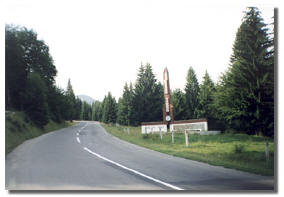|
||||||
|
Public Holidays
January 1 and 2: New Year Monday following Orthodox Easter: March, April or early May (date varies) May 1: Labor Day December 1: National Day December 25-26: Christmas
Several religious holidays including feasts of St. John (January 7), St. George (April 23), Sts. Peter & Paul (June 29), St. Mary (August 15), St. Michael (November 8) and St. Nicholas (December 6) are observed throughout the year in rural areas. It is customary for Romanians all over the country to celebrate their Saint's Name Day (Ziua Onomastica). Ethnic minorities celebrate their own holidays. |
|
|
Romania's history has not been as idyllically peaceful as its geography. Over the centuries, various migrating people invaded Romania. Romania's historical provinces Wallachia and Moldova offered furious resistance to the invading Ottoman Turks. Transylvania was successively under Hapsburg, Ottoman or Wallachian rule, while remaining an autonomous province.
Romania's post WWII history as a communist-block nation is more widely known, primarily due to the excesses of the former dictator Nicolae Ceausescu. In December 1989 a national uprising led to his overthrow. The 1991 Constitution established Romania as a republic with a multiparty system, market economy and individual rights of free speech, religion and private ownership. |
|

